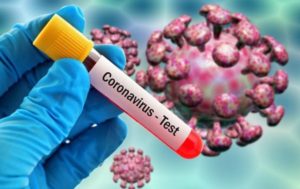Mobilizing domestic resources is important in dealing with outbreaks of virulent diseases – Expert
 Mobilizing domestic resources for the prevention of diseases, public health programmes and the improvement of public health infrastructure are some ways Ghana can strengthen the response to the sudden outbreaks of highly virulent diseases, a public health expert has said.
Mobilizing domestic resources for the prevention of diseases, public health programmes and the improvement of public health infrastructure are some ways Ghana can strengthen the response to the sudden outbreaks of highly virulent diseases, a public health expert has said.
Dr. Andrews Ayim, a member of the Faculty of Public Health of the College of Physicians and Surgeons, said educating and encouraging the public to embrace vaccination could also help contain the outbreak of infectious diseases.
He was responding to a series of questions from ghanabusinessnews.com on the increasing outbreaks and sudden appearances of virulent and contagious diseases, which have serious public health implication, both locally and globally.
Apart from the global COVID-19 pandemic, in recent times, cases of the Ebola and Marburg virus diseases have surfaced suddenly in countries very close to Ghana, causing health authorities to activate all emergency response systems to curb any spread of these disease, in-country and across the sub-region.
Just recently, West Africa’s first-ever case of the Marburg virus disease was confirmed in Guinea. This disease is highly infectious, deadly and causes haemorrhagic fever. Gueckedou, where Marburg was confirmed, is also the same region where cases of the 2021 Ebola outbreak in Guinea as well as the 2014-2016 West Africa outbreak were initially detected.
Similarly, the first Ebola Case in 25 Years was confirmed in Cote d’Ivoire this year.
In response to how Ghana could strengthen its surveillance system along its borders, Dr. Ayim, said Ghana should be ready to implement international health regulations including other preventive and public health policies.
He advised on the need to be more innovative in public education on issues around personal hygiene like the washing of hands, covering of nose and mouth when coughing and observing social distance.
Dr. Ayim touched on the need to promote healthy eating habits and lifestyles saying the public should be encouraged to have healthy eating habits and the eating of more vegetables and fruits to boost immunity, in addition to eating well-cooked food.
He said the COVID-19 (SARS CoV2), the Ebola and the Marburg Virus diseases are all vector borne diseases.
“Both SARS CoV2 and the Marburg Virus are known to be hosted by fruit bats and are transmitted to humans who consumed these bats. Also the Ebola virus is also known to be hosted by monkeys and they are transmitted to humans who consume these monkeys.”
On the increasing cases of outbreaks of some of these highly infectious diseases, Dr. Anim said there could be many reasons and added that the World Health Organisation (WHO) has identified some contributory factors, which include improved transportation system.
He said the world is now a global village and due to improved transportation and communication system, infected persons who travel across the world may spread these viruses.
Adding that the high reproductive rates and the long incubation period of some of these diseases help in the spread of these conditions.
Dr. Ayim said the SARS CoV2 has an incubation period of about 10 days and during this period, an infected person is infectious even though they may not show symptoms.
On how robust Ghana’s disease surveillance system is to deal with these outbreaks, he said the disease control and surveillance sector are doing their best in providing updates on cases, such as the COVID-19.
He touched on progress Ghana has made in the establishment of an infectious disease center. In relation to the COVID-19, he explained that there is enhanced testing, treatment and contact tracing of cases.
He said the country has 34 accredited laboratories for testing and that President Nana Akufo-Addo in his 26th updates stated the commissioning of the National Vaccine Manufacturing institute.
According to Dr. Ayim, with a seed of $25 Million USD already committed, “hopefully we can start producing vaccines by 2023.”
He gave some advice on what the ordinary Ghanaian can do to stay alert and help deal with any emergency involving the outbreaks of some of these diseases and said there is the need to adhere to simple COVID-19 protocols.
Noting that more education is needed using opinion leaders to help change, “our mind set on observing the COVID-19 safety protocols as an intervention but not as a punishment.”
By Eunice Menka
